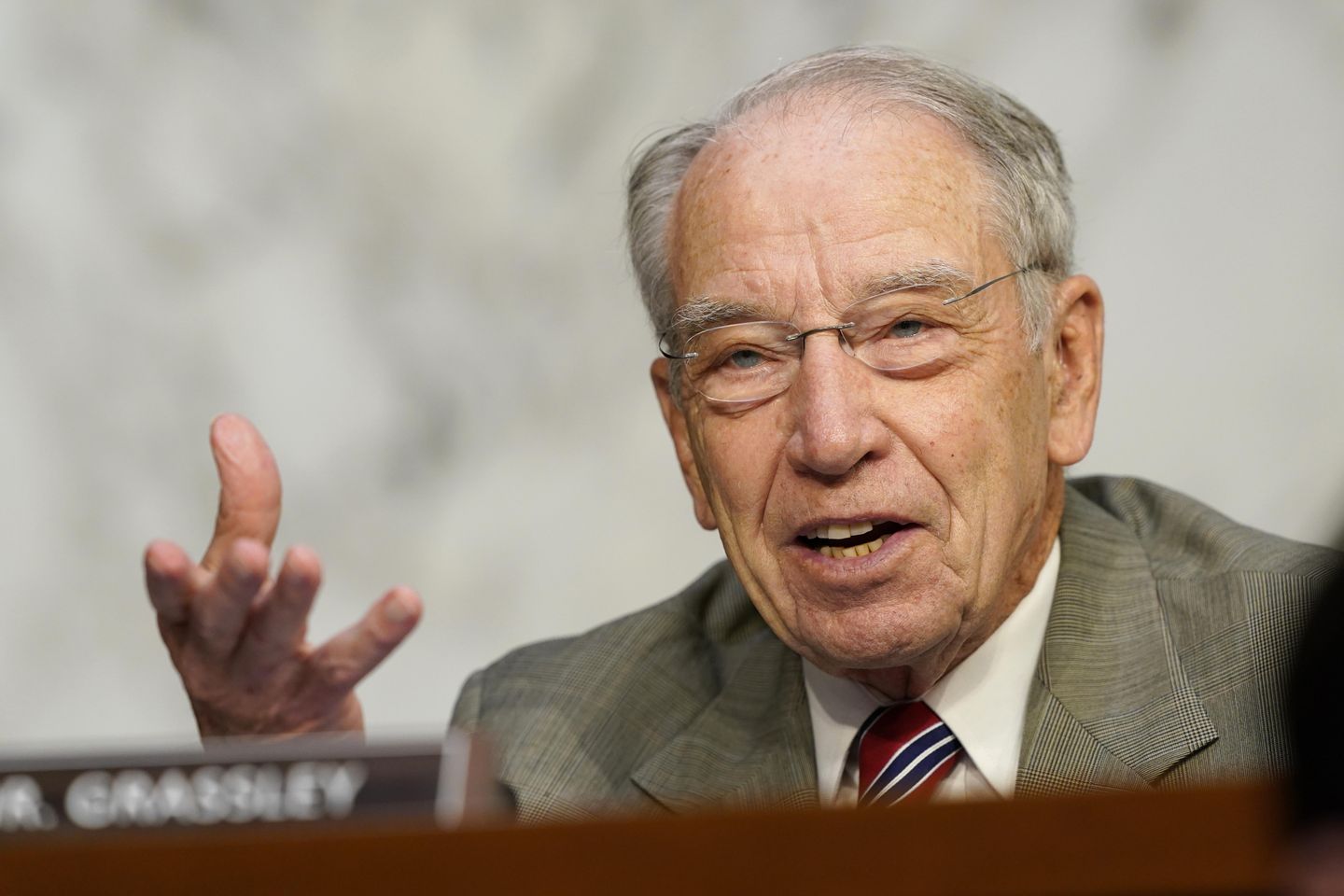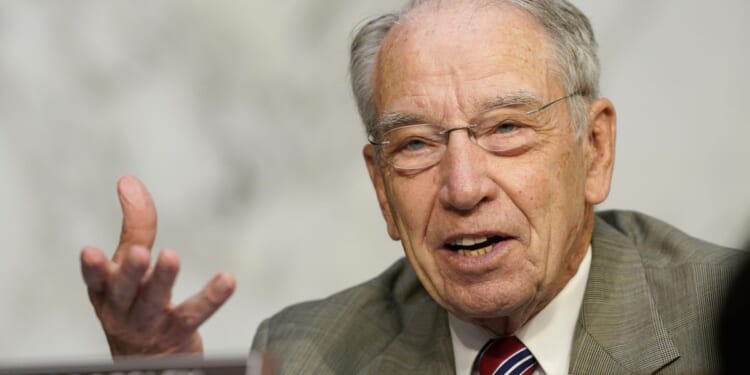
Republican lawmakers on the Senate Judiciary Committee say they are seeking “action and accountability” after discovering new details and discrepancies surrounding an anti-Catholic memo prepared by analysts last year in the FBI‘s Richmond, Virginia, field office.
In a letter spearheaded by Sen. Charles E. Grassley to FBI Director Christopher A. Wray, the Iowa Republican and his colleagues asked about revelations that top FBI officials ordered analysts to permanently delete files related to the memo, which identified “traditional Catholics” as potential domestic terrorists.
“Now we know that information related to the Richmond memo wasn’t provided to Congress because the FBI deleted the records as soon as the incident became public,” the letter stated. “According to a report released by the House Judiciary Committee on December 4, Deputy Director Paul Abbate ordered Richmond Special Agent in Charge Stanley Meador to ‘take [the memo] down’ as soon as it became public.”
According to Agent Meador, the lawmakers say, there was then a “follow-up call” from Tonya Ugoretz, the FBI‘s assistant director of the Directorate of Intelligence, ordering Agent Meador to notify the deputy director and Ms. Ugoretz “‘when [he] had taken the necessary steps’ to remove the memorandum, and anything referring to the document, from FBI systems.”
The GOP lawmakers demanded an immediate explanation for the order to delete the records, accusing the bureau of obstruction and asking why it withheld the information from the Senate, despite repeated requests for records.
The FBI told The Washington Times in a statement, “As the FBI has stated many times, the intelligence product did not meet our exacting standards and was quickly removed from FBI systems. We have provided hundreds of pages of documents and briefings to Congress to address our findings and the numerous actions we are taking to address identified shortcomings.”
“Any characterization that the FBI is targeting Catholics is false,” the statement said. “The FBI is committed to upholding the constitutional rights of all Americans, and we do not conduct investigations based solely on First Amendment-protected activity, including religious practices. The FBI investigates violence, threats of violence, and violations of federal law.”
The Richmond memo, which was publicly leaked in January 2023, labeled “radical-traditionalist Catholic[s]” as potential “racially or ethnically motivated violent extremists.” It stated that “racially or ethnically motivated violent extremists (RMVEs) in radical-traditionalist Catholic (RTC) ideology almost certainly presents opportunities for threat mitigation through the exploration of new avenues for tripwire and source development.”
When the memo became widely known, Mr. Wray denounced it and distanced himself and the bureau from it. He said it was the product of just one field office.
The GOP senators also asked Mr. Wray in their letter about the accuracy of that claim.
Mr. Grassley said that Mr. Wray‘s congressional testimony conflicted with information the FBI has since provided to him and the House Judiciary Committee, in which he says multiple field offices contributed to it. He also said an analyst responsible for the first anti-Catholic memo prepared a second one for distribution to the entire FBI.
“In your testimony before the Senate Judiciary Committee on December 5, 2023, you claimed that the involvement of the two other field offices related to ‘two sentences or something or thereabouts referencing each of these other offices’ cases, rather than the other offices reviewing the full memo,’” the lawmakers wrote to Mr. Wray. “On this basis, you stood by your prior testimony, and said that ‘[you thought] this notion that other field offices were involved [was] a garble.’”
They wrote, “But this involvement was not a ‘garble.’ The Richmond memo itself refers to information obtained from a ‘Portland liaison contact’ as being one of the sources from which the memo was ‘primarily derived.’”
The Republican senators noted that information was redacted in the public version of the memo, but later provided to the House to make it seem that the memo was the work of only one field office.
“This information was material and important to all of us, and to any member concerned about the memo’s scope. Members of Congress in both chambers had inquired about the scope of the memo, its preparation and distribution, before you testified,” they said. “The involvement of the other field offices therefore was material information that you should have provided, and its redaction coupled with your testimony appear to show a conscious effort to withhold that information from us.”
The FBI, in its statement, said Mr. Wray “was accurate when he testified that the intelligence product was produced by one field office and that the authors included a couple of sentences referring to cases from other offices.”
“An internal review conducted by the FBI found no malicious intent to target Catholics or members of any other religious faith, and did not identify any investigative steps taken as a result of the product,” the FBI said.
During Mr. Wray‘s testimony before the Senate Judiciary Committee last Dec. 5, he claimed it was a distortion for critics to claim that numerous FBI field offices beyond Richmond were involved in investigating whether traditional Catholics posed a terrorist threat.
“I think that this notion that other field offices were involved is a garble,” he told the panel. “The only involvement of the two other field offices was the Richmond authors of the product included two sentences or something that they’re about referencing each of these other offices’ cases.”
Mr. Wray said the Richmond field office sent those two sentences about the other offices’ cases to the field offices, not the whole product, and asked both field offices, “Hey, did we describe your case right?”
He also said he could not recall whether he had read the unredacted version of the anti-Catholic memo produced by the Richmond field office before he previously testified to the House Judiciary Committee.












